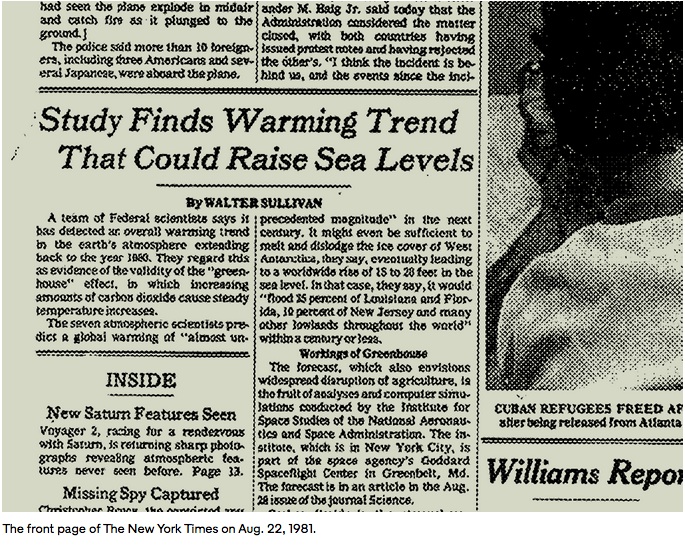Curator Note: This is the first installment of a two part article that details the history of our understanding of how humans influence climate change. This is an incredibly important article that we all should read and integrate into our thinking about the future.
. . .
A broad international consensus had settled on a solution: a global treaty to curb carbon emissions. The idea began to coalesce as early as February 1979, at the first World Climate Conference in Geneva, when scientists from 50 nations agreed unanimously that it was “urgently necessary” to act. Four months later, at the Group of 7 meeting in Tokyo, the leaders of the world’s seven wealthiest nations signed a statement resolving to reduce carbon emissions. Ten years later, the first major diplomatic meeting to approve the framework for a binding treaty was called in the Netherlands. Delegates from more than 60 nations attended, with the goal of establishing a global summit meeting to be held about a year later. Among scientists and world leaders, the sentiment was unanimous: Action had to be taken, and the United States would need to lead. It didn’t.
The inaugural chapter of the climate-change saga is over. In that chapter — call it Apprehension — we identified the threat and its consequences. We spoke, with increasing urgency and self-delusion, of the prospect of triumphing against long odds. But we did not seriously consider the prospect of failure. We understood what failure would mean for global temperatures, coastlines, agricultural yield, immigration patterns, the world economy. But we have not allowed ourselves to comprehend what failure might mean for us. How will it change the way we see ourselves, how we remember the past, how we imagine the future? Why did we do this to ourselves? These questions will be the subject of climate change’s second chapter — call it The Reckoning. There can be no understanding of our current and future predicament without understanding why we failed to solve this problem when we had the chance.




